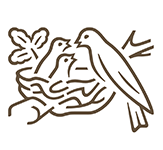Nestlé Expands Efforts in Forest Monitoring With Public Radar Technology

Nestlé expands efforts in forest monitoring with public radar technology
Nestlé today joined a coalition of major palm oil producers and buyers to support and fund the development of a new, publicly available radar-based forest monitoring system known as Radar Alerts for Detecting Deforestation (RADD).
Since the end of 2018, Nestlé has been monitoring 100% of its global palm oil supply chains using Starling, a monitoring system using optical and radar satellites. This allows the company to manage risks and perform field intervention strategies to drive changes.
Today’s move is a step further to realize Nestlé’s no deforestation commitment by contributing to industry transformation through publicly accessible monitoring system. “No longer can anyone claim to be unaware of the deforestation risks around their supply chains,” said Benjamin Ware, Global Head of Responsible Sourcing, Nestlé.
Developed by Wageningen University and Satelligence, and facilitated by World Resources Institute, RADD is the first radar-based monitoring system of this scale that will make deforestation alerts publicly available. Alerts will be made available on Global Forest Watch and Global Forest Watch Pro.
“We take an integrated approach in addressing the risks of deforestation, combining tools like certification, supply chain mapping, on-the-ground verification and satellite monitoring,” said Benjamin. “We are pleased to support the development of forest monitoring system like RADD as it will bring accountability and transparency across the industry.”
The open nature of the system will enable companies - plus governments, civil society organizations and concerned stakeholders - to monitor forests using the same information source and standards.
Nestlé is committed to having deforestation-free products. As of April 2019, 77% of the key agricultural commodities Nestlé buys, including palm oil, were verified deforestation-free. That figure will surpass 90% by the end of 2020. Nestlé will continue to work with smallholder farmers and large suppliers alike to be close to 100% deforestation-free within the next three years.
Read the full press release.

